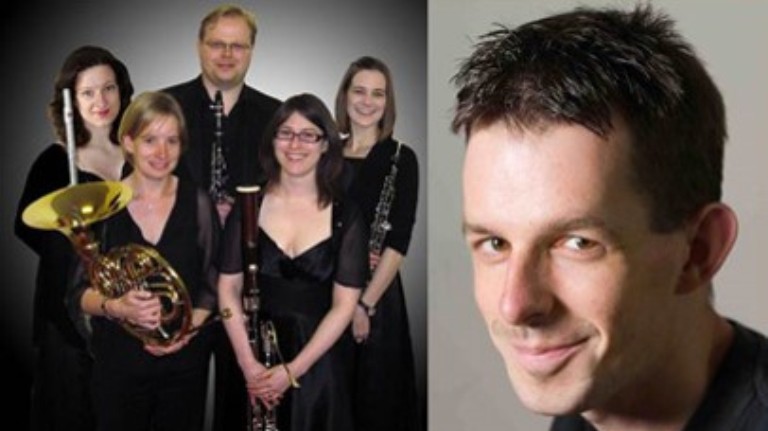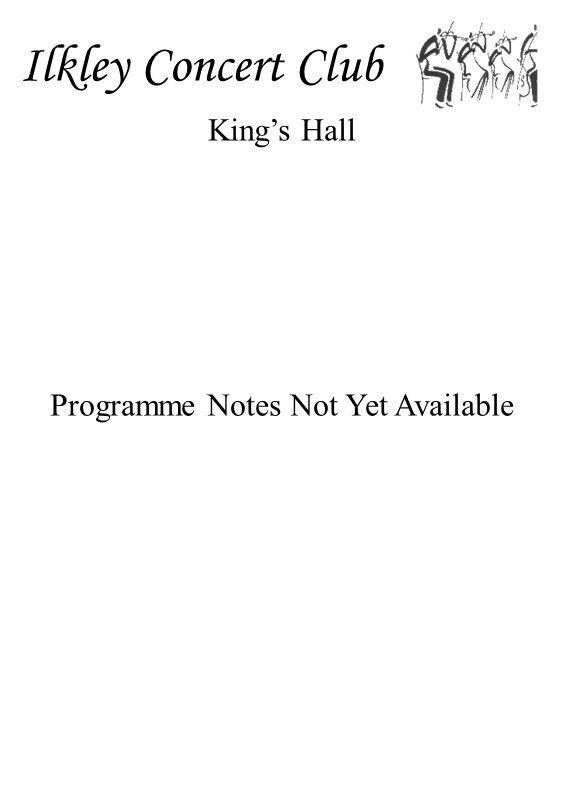REVIEWS
GALLIMAUFRY ENSEMBLE

Wednesday 14th March 2012
Mozart – Quintet for piano & wind in E flat K452
Hindemith – Kleine Kammermusik Op.24/2 (Quintet)
Saint Saens – Caprice on Danish & Russian Airs Op.79 (fl,ob,cl,pno)
Pilss – Serenade for wind quintet
Francaix – L’Heure de Berger (piano & wind sextet)
The Gallimaufry Ensemble is one of the most exciting and dynamic young groups in the UK. Their energy and vitality of interpretation bring freshness to the music, whether a classic, a new commission or an arrangement. The Gallimaufry Ensemble was formed in 2000 at the Royal Academy of Music and was subsequently awarded the prestigious Leverhulme Chamber Music Fellowship. The late, great, Jack Brymer wrote of the Hindemith “Possibly the greatest wind quintet ever written.” The delightful Françaix is subtitled ‘Musique de Brasserie’ in honour of a great French restaurant and it finishes in a riot of colour.
REVIEW BY GEOFFREY KINDER
A Diverting Evening at the Ilkley Concert Club
Their concert began with Mozart’s Piano and Wind Quintet in E flat K452. He thought it the best work he’d ever written and these young players did not let him down. From the spacious introduction it was clear that this very individual ensemble was fully up to all the challenges that this wonderful music offers. By the time we reached the allegro we’d already enjoyed Holly Randall’s expressive oboe sound, Peter Spark’s mellifluous clarinet playing, Shelly Organ’s ripe bassoon tone and the full-on horn timbre of Alexia Cammish; and, neither self-effacing nor over-assertive, pianist Iain Farrington was the ideal chamber music partner. The tight ensemble playing was a joy to hear; the balance between piano and winds always perfect and their phrasing had an intensely vocal quality. This superb performance left me marvelling at the nonchalant ease with which Mozart achieves his musical effects.
Read MoreThen came the more acerbic Hindemith Kleine Kammermusic for Wind Quintet. This pungent and characterful music received a suitably robust performance that fully brought out its mordant humour. The more reflective moments were equally well done with some lovely legato playing in the central slow movement. Throughout there was real understanding of the style required for this no-nonsense anti-romantic music. An enjoyably bracing listen.
The wind music repertoire with its limited supply of established masterpieces poses programming problems which were well solved by the Gallimaufry’s decision to make the second half a series of divertissements beginning with Saint-Saëns’ Caprice opus 79. This gave Maxine Willis, who we’d already heard on flute and piccolo in the Hindemith, opportunity to display her virtuosity as a flautist. Then came the Pilss Wind Quintet, a garulous diversion that the players did their best to breathe life into. The strongest movement was the scherzo with its effective instrumental interplay. The splendidly ungrand finale was Françaix’s L’heure du Berger, whose louche Parisian cabaret style was caught to a tee. I for one left the hall with a naughty smile on my face.
Recommended Recordings
by RAYMOND WAUD
Mozart: Stephen Hough (piano) and the Berlin Wind Quintet feature in an outstanding disc where the Mozart is coupled with the Beethoven Piano Quintet on BIS BISCD 1552 (full price). There is a good budget alternative where Radu Lupu (piano) and members of the English C.O. play the Quintet and Mozart’s Piano Concertos Nos. 12 and 21 on Decca 475 9987.
Read MoreHindemith: All the Hindemith Kammermusik are included on a Decca Double 473 722 2 (budget price). Riccardo Chailly conducts the Royal Concertgebouw Orchestra.
Saint-Saens & Françaix: Both pieces are catered for on an excellent Chandos CD CHAN 10420 (full price) where Vovka Ashkenazy (piano) and the Reykjavic Wind Quintet couple these works with the Poulenc Sextuor, Rimsky-Korsakov’s Quintet and D’Indy’s Sarabande & Minuet. The recording is excellent.
Pilss: There seems to be only one recording available which, fortunately, is a very good one. The Berlin Woodwind Quintet perform the Pilss, together with works by Zemlinsky, Foerster and Reinecke on BIS BISCD 612 (full price) and, as usual with BIS, the recording leaves nothing to be desired.
Raymond Waud

